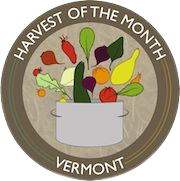Cultivating Hope: Why grow your own?
Growing your own food is often celebrated as an act of independence. But for many enslaved African Americans throughout history, it was a means of nourishment, subsistence, and autonomy—a quiet rebellion against the systems that sought to keep them dependent and voiceless.
On the margins of plantations, and later in the shadow of exploitative labor systems, African American families cultivated subsistence plots, carving out a form of agency rooted in the soil.
These gardens were not a luxury—they were vital.
In many enslaved communities, fruits and vegetables were largely absent from daily rations, which often consisted of little more than cornmeal and pork. Nutrient-rich produce had to be grown by hand, after long hours in the fields.
Families would return to their cabins by night, tending to small garden plots by the flicker of lantern light.
These subsistence gardens became critical sources of nourishment, growing crops like cucumbers, sweet potatoes, okra, and collard greens.
In some cases, the yield from these gardens was enough to sell. When possible, families sold surplus vegetables to earn small sums of cash—often just enough to buy more seed or necessary goods.
To extend the harvest through the lean months, preservation methods like pickling were used. Jars were often stored in underground pits hidden beneath the floor—makeshift root cellars that safeguarded both food and the few personal items families were allowed to keep.
One thing that couldn’t be buried was the wealth of knowledge passed down through generations: seed saving, seasonal planting, canning techniques, and treasured recipes. This heritage formed a resilient food culture—one deeply connected to health, family, and resistance.
Fast forward to 1969, and this legacy was still alive in the work of Fannie Lou Hamer, a civil rights leader in Mississippi who knew that true liberation required more than political rights—it required food sovereignty.
Best known for co-founding the Mississippi Freedom Democratic Party and challenging the segregationist delegation at the 1964 Democratic National Convention, Hamer also focused her efforts closer to home, where communities suffered under the shadow of unjust practices such as sharecropping. She believed that for Black Americans to become fully free, they had to control their own food supply.
That belief took root—literally—with the founding of the Freedom Farm Cooperative in Sunflower County, Mississippi. Hamer and her supporters purchased between 40 and 60 acres of fertile Delta land to grow staple crops like snap beans, squash, butter beans, peas, and of course, cucumbers.
Through this cooperative model, families grew their own food and also shared it with the surrounding community—preserving produce in jars and distributing it to neighbors in need.
As Hamer powerfully said:
“When you have 400 quarts of greens and gumbo soup canned for the winter, nobody can push you around or tell you what to say or do.”
At Freedom Farm healing, empowerment, and reclaiming dignity all took root alongside the numerous crops in the fertile soil of the Mississippi delta.
Today, every school garden, classroom taste test, and homegrown cucumber has the potential to carry forward a little bit of this immense legacy.
When we are able to grow and preserve our own food, even if it is a single jar of pickles, we plant the seeds for a future of nourishment, independence, and ultimately, hope.
Sources:
Edge, J. T. (2017, May 6). The hidden radicalism of Southern food. The New York Times. https://www.nytimes.com/2017/05/06/opinion/sunday/the-hidden-radicalism-of-southern-food.html
Bates, J. (2020, October 2). Planting legacies: Gardens of enslaved families at Monticello. Monticello. https://www.monticello.org/exhibits-events/blog/planting-legacies-gardens-of-enslaved-families-at-monticello/

